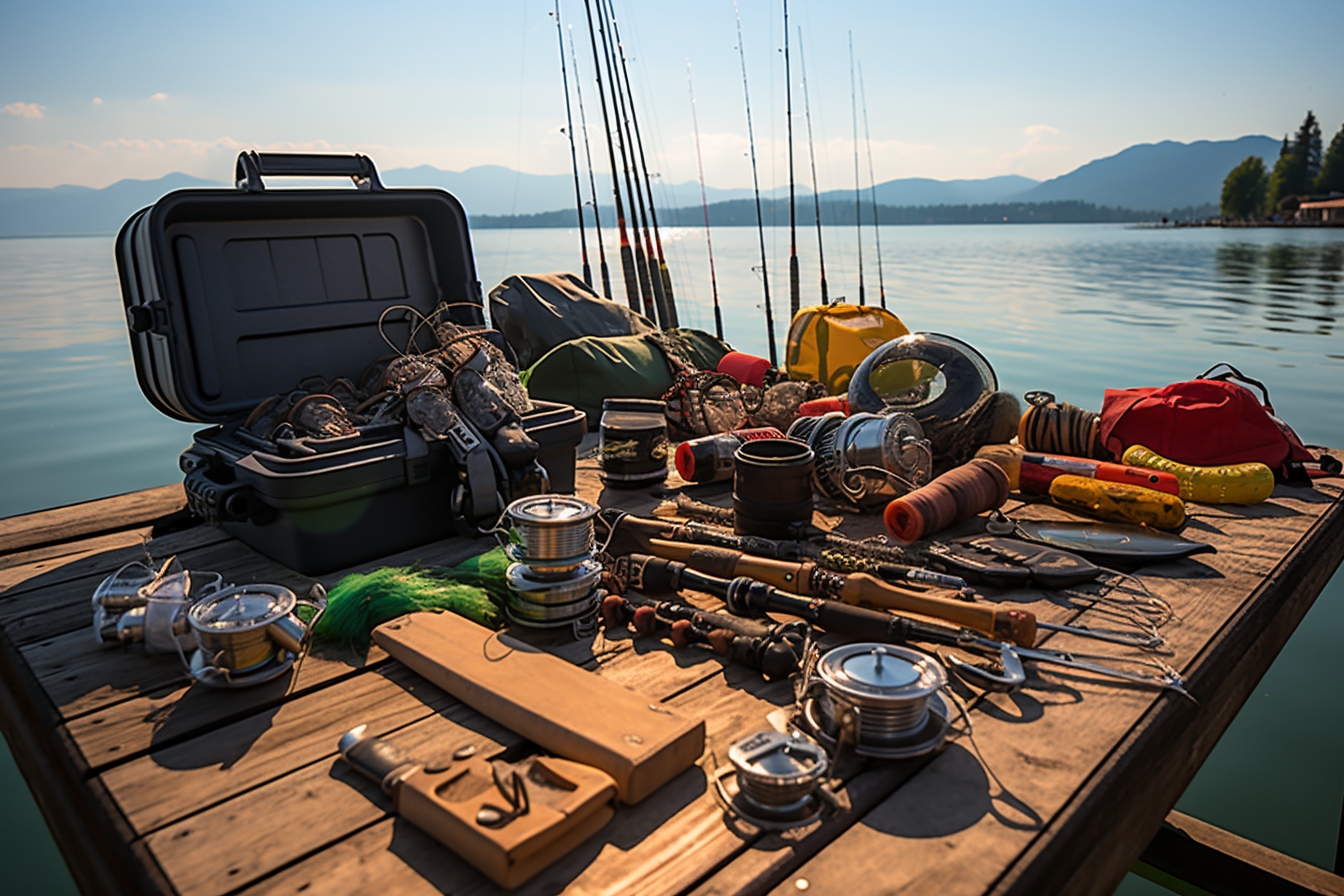Sea fishing is an exciting activity that requires suitable equipment for a successful experience. Whether you are a beginner or experienced fisherman, it is essential to choose and maintain your equipment carefully in order to optimize your chances of success during your sea trips.
Choose the right equipment according to your needs
Choosing your saltwater fishing equipment will depend on several factors such as the type of fishing you do, where you fish and the fish you want to catch. To begin, it is important to choose a fishing rod that suits your needs.
If you plan to fish from a boat, a sturdy, saltwater-resistant fishing rod is essential. Opt for a fiberglass or carbon rod, which will offer better corrosion resistance. If you prefer to fish from shore, a lighter, more maneuverable rod will be more appropriate.
When it comes to reels, it is recommended to choose a corrosion-resistant model with a high-performance anti-return system. Also make sure the reel has a good line capacity, as fish in the sea are often larger and more powerful.
Don’t forget to equip yourself with a fishing line suitable for fishing at sea. Choose nylon or fluorocarbon line, which offer better resistance to abrasion and salt water.
Maintain your equipment to preserve it
Once you have chosen your sea fishing equipment, it is essential to take care of it to extend its lifespan. Here are some tips for maintaining your equipment:
- Rinse your equipment with fresh water after each sea trip. Salt water can cause long-term damage if not properly disposed of. Use a jet of water to thoroughly clean your fishing rod, reel and lures. Also be sure to remove any traces of sand or mud.
- Regularly check the condition of your lines, hooks and lures. Replace them if necessary to avoid any disappointment during your next outings. A worn line or rusty hook can break easily and result in the loss of a fish.
- Regularly grease the moving parts of your reels to prevent wear and facilitate operation. Use a grease specifically designed for fishing reels and follow the manufacturer’s recommendations.
- Store your fishing gear in a dry place out of direct sunlight. Prolonged exposure to UV rays can deteriorate materials and weaken lines.
The importance of marine knowledge for successful fishing
Knowing the equipment is certainly essential for any fishing trip, but another dimension that is often underestimated is knowledge of the marine environment. It is by understanding the ecosystem you are fishing that you can truly maximize your chances of catching.
The ocean is a living, dynamic and constantly evolving environment. Tides, for example, play a crucial role in the movement of fish. Understanding the rhythm of tides and how they affect prey availability can give you a distinct advantage. In the open sea, fish tend to be more dispersed, while at low tide they can concentrate in smaller areas, making them easier to capture.
The currents are another factor that should not be overlooked. Some fish like to swim against the current, using shaded areas to hide and hunt. Knowing where currents converge can help you locate these fish.
Likewise, the water temperature also influences the presence and activity of fish. Some fish prefer warmer waters, others colder waters. A slight variation in temperature can therefore move a population of fish from one area to another.
Finally, it is just as vital to respect this environment. Only take what you need, and release any fish you don’t want to keep. Responsible fishing ensures that future generations can also enjoy this exciting activity.
Fishing techniques for a respectful approach
In addition to equipment and understanding the environment, it is essential to adopt a suitable fishing technique. Choosing the right technique can not only increase your chances of catching, but also ensure that fishing is carried out with respect for the fish and the marine ecosystem.
THE throw-bring back is a common method of sea fishing, using a lure to attract fish. This technique can be very effective, especially when you can spot areas where fish are active. However, it is crucial to choose the right lure for the target species and adjust the retrieve speed based on fish activity.
There trolling is another method that involves pulling one or more lures behind a moving boat. While this can be a productive technique, it is essential to follow the recommended speeds to avoid unnecessarily stressing the fish.
There drift fishing, on the other hand, uses the natural current to move the boat and the lure or bait. This mimics the natural movement of prey, making the bait more attractive to predatory fish.
It is also crucial to handle fish correctly during capture and release. Avoid touching the fish with dry hands, as this can damage its protective mucus. If possible, use pliers or barbless hooks to make release easier.
Ultimately, successful fishing is about more than catching the biggest fish, but rather about fishing ethically and respectfully, ensuring the conservation of species and the health of our oceans. Adopting the right techniques while staying informed of best practices will ensure that fishing remains an enjoyable and sustainable activity for everyone.
Safety during your sea fishing trips
While the passion for fishing can often be all-consuming, safety should never be neglected. To ensure a pleasant and risk-free experience, some precautions are necessary.
The sea is unpredictable. That is why it is crucial to check the weather forecast before going out. Severe storms can arise quickly, and even the most experienced fishermen can be caught off guard by strong winds and high waves. A good sailor knows when it is time to return to port.
THE wearing a life jacket is another essential measure, often overlooked, even by seasoned fishermen. No matter how confident you are in your swimming skills, a vest is an essential item for any sea trip.
Avoid fishing alone. In an emergency, having a partner by your side can make all the difference. If you must go out alone, always inform someone of your destination and expected return time.
Always keep a first aid kit on board. With hooks, knives and other sharp tools commonly used while fishing, the risks of minor injuries are real. A well-equipped kit will allow you to quickly deal with any accident.
There dehydration is another often underestimated risk when sea fishing. The sun and salt can quickly dehydrate you. Always carry enough water and remember to drink regularly.
Finally, keep in mind that the sun reflects on the water, increasing exposure to UV rays. Apply sunscreen, wear a hat and sunglasses to protect your skin and eyes.
Sea fishing offers unique sensations and memorable memories, but it also requires rigorous preparation. Safety should always be your priority, ensuring not only your well-being, but also that of the marine ecosystem you love so much













